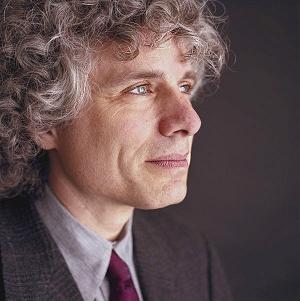It is, I think, inevitable:
WASHINGTON (Reuters) - The FBI is embarking on a $1 billion project to build the world's largest computer database of biometrics to give the government more ways to identify people at home and abroad, the Washington Post reported on Friday.
The FBI has already started compiling digital images of faces, fingerprints and palm patterns in its systems, the paper said.
In January, the agency -- which focuses on violations of federal law, espionage by foreigners and terrorist activities -- expects to award a 10-year contract to expand the amount and kinds of biometric information it receives, it said.
At an employer's request, the FBI will also retain the fingerprints of employees who have undergone criminal background checks, the paper said.
If successful, the system, called Next Generation Identification, will collect the biometric information in one place for identification and forensic purposes, the Post said.
Those who have the capability and the budget will be driven to compile ever increasing information about ever more people. It gives a feeling of comfort to the powerful, a chimera of safety, the feeling that if enough is known about enough people then harmful actions can not only be punished but even prevented.
A combination of ever-increasing processing power and the capacity to know biometric and also genetic information about people means that (other things being equal) the trend will be to recording every individual in an accessible form. Who would ever have the power or, having the power, the will to stand up and say 'Stop now, we don't need to know.'?
It won't be enough to shout 'privacy' or 'liberty' as though these slogans will stop this trend, nor 'transparency' or 'safeguards' as though these will legitimate the amassing of data. It will be important to know who has access to what information and how it may be used. (In fact it may will be in the interests of the security services to let people know just how much they know, so long as they are vague about the limits, in order to deter malevolent action. But it will be impossible to state the limits of how it will be used - once collected the data will be maipulable in ways currently unconsidered.)
We are, I believe, on the threashold of a vast change in social and political relationships embodied in the capacity to digitise people (in effect) of which Facebook is to future databases as an abacus to the computer.
How will we live with the assumption that everything is known and nothing forgotten? Will we be ruled by shame - or will shame be a thing of the past as everyone is shown to do shameful things? Will we find ways of public forgetting to enable us to grow - or will teenage excess, misjudgement, rebellion always be held against a person? Will forgiveness become a new public virtue? Or will the sophistication of data lead to crude divisions of people into, say, those who are a threat and those who are tolerable - white and black hats again?
It will not all be bad - the possibility of individualised medicine may well be one advance, the impossibility of racism another - and it may (despite the present structures creating these systems) tend towards egalitarianism. But such extensive change is unlikely to happen without social turmoil and pain.











